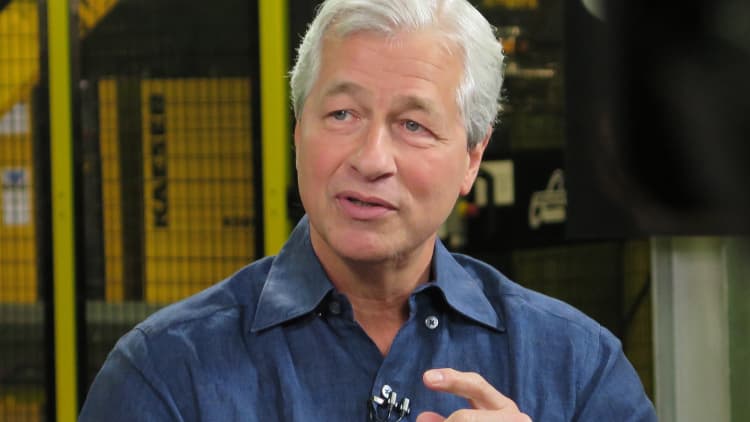J.P. Morgan Chase CEO Jamie Dimon has been on the receiving end of some testy phone calls recently.
After he and fellow billionaires Amazon's Jeff Bezos and Berkshire Hathway's Warren Buffett announced the formation of a joint venture in January to reduce medical costs for their three companies' 1.5 million insured employees, several healthcare-related providers reached out to Dimon personally, he said Friday during a New York conference.
"Quite a bit of them were pissed off, which kind of pissed me off," Dimon, 62, said. "They're going to tell me I can't do a better job for my employees? Isn't that what they're supposed to help me do anyway? That's all we're trying to do, is do a better job for the health of our employees."

The effort, spearheaded by Berkshire Hathaway executive and J.P. Morgan board member Todd Combs, has yet to settle on a CEO. After that happens, the venture will begin testing ideas to attack the myriad problems related to the rising costs of American healthcare, Dimon said. When the effort was announced January 30, the shares of pharmacy benefit managers, heath insurers and biotechnology companies all slumped.
The effort has a 20-year horizon and seeks to partner with companies within the healthcare ecosystem, Dimon said. Among issues to tackle are related to use of data, lack of consumer choice, high costs related to fraud and administrative costs, end of life care, and lifestyle-related diseases, he said.
"They could attack it one drug at a time, they could attack chronic care, they could attack emergency rooms," Dimon said. "There will be things we will come up with that we couldn't possibly think of today that will hopefully make it much better."


